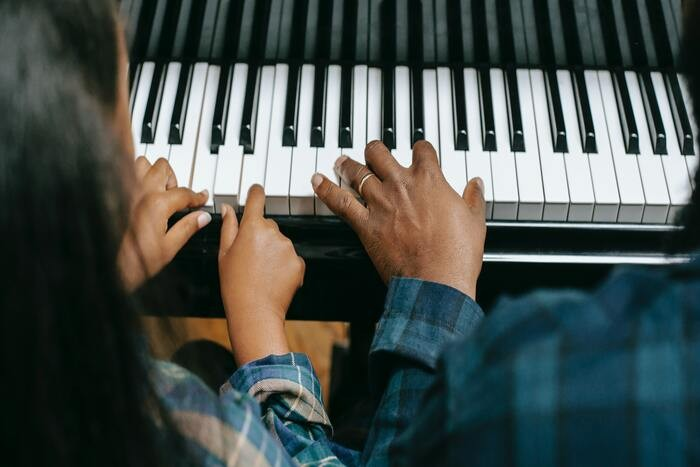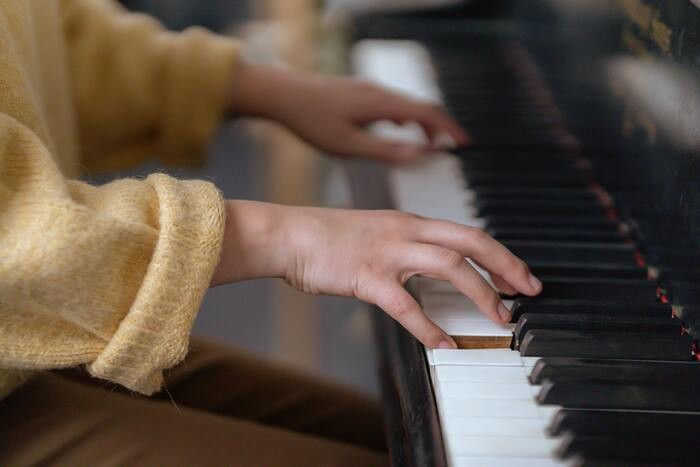It is said that to master the piano truly, one would need at least ten years of practice. The piano is a great musical instrument for learning a new skill. However, if you are starting, don't be discouraged – it only takes about a month of training to learn the basics, play certain songs, and develop your skills. How long it takes for you to understand the piano depends on how much time you invest in it, your sense of rhythm, and your multitasking skills.
This article will provide an overview of the different steps involved in learning to play the piano and developing a piano technique. We will also discuss some of the challenges that you might face along the way, as well as some tips on how to overcome them. So keep reading to learn everything you need to play this fantastic instrument!
See our reviews of pianos here.
Key Points
•It is said that it takes at least ten years to master the piano, but a month of training can teach the basics and develop skills.
• How long it takes to understand the piano depends on how much time is invested, your sense of rhythm, and your multitasking skills.
• To start learning piano, one must choose the right instrument and find a qualified teacher.
• Practice regularly and be patient with yourself – everyone learns at a different pace.

A Roadmap to Learning Piano
Learning how to play the piano is getting acquainted with the different parts of the keyboard. Each key has a unique name and symbol. You will also need to learn which fingers to use when pressing each key. As a beginner, it is best to start with simple songs that only require one or two fingers per key.
1. Choose the Right Instrument
The first step in learning piano is choosing the right instrument. If you're starting, you may want to consider renting or purchasing a digital piano instead of an acoustic one. Digital pianos are typically more affordable and easier to maintain than acoustic ones. They offer a variety of features that can be helpful for beginners, such as built-in metronomes and instructional materials.
2. Find a Piano Teacher
Once you have your instrument, the next step is finding a piano teacher. Private lessons are great. You don't have to hire a professional jazz pianist, but a good teacher can make a huge difference in your progress as a musician. While it's possible to learn how to play the piano without taking lessons, we highly recommend finding qualified piano teachers who can help you develop good technique from the start.
3. Practice Consistently
The third step is practicing consistently. Like anything else, the more you practice piano, the better you'll become at it. One of the best ways to ensure that you practice consistently is to set aside a specific time each day for practice, stick to it as much as possible, and move not just your hands but your fingers too.
You may also want to consider joining a local music school, checking out YouTube videos, or joining a community orchestra that will give you sheet music for some dedicated practice and continuous progress even when you're not taking lessons.
4. Be Patient with Yourself
Don't be in a rush to learn complicated songs or to reach an advanced stage. Be patient with yourself! Learning any new skill takes time and effort, so don't get discouraged if you don't see results immediately. Remember that even the most famous and successful musicians had to start somewhere—and with enough practice and dedication, you can achieve anything you set your mind to!

It Takes Time to See the Results
Once you have familiarized yourself with the keyboard and learned some basic chords, such as major and minor chords and melodies, you must start practicing regularly. You should set aside at least 30 minutes per day for practice. If possible, try to do a little bit of exercise every day instead of cramming all your training into one session. This will help make your progress more gradual and steady.
In addition, with the help of a good piano teacher, practicing regularly builds muscle memory and ultimately improves your piano skills. You will also need to develop your rhythmic skills, learn basic music theory, and read music. One way to do this is by clapping along with the songs you are trying to learn. This will help train your ears and hands to play together in time.
Another critical aspect of learning how to play the piano is multitasking. This means being able to play different chords or melodies at the same time. One way to improve your multitasking skills is by using both hands when playing a song.
For example, when playing "Twinkle Twinkle Little Star," as part of your practice sessions, try using your right hand for the melody and your left hand for the chords. As you get more comfortable doing this, you can start adding more complexity to classical music by playing more than one chord simultaneously with each hand.
How Long Does it Take to Learn Piano?
Take Aways
To answer the question of how long it takes to learn the piano, we first need to understand what is involved in learning this instrument. Regular practice can teach you the basics in a month, but developing your skills and playing certain songs can take years. It all comes down to how much time you are willing to invest in learning the piano, your sense of rhythm, and your multitasking skills.
If you are serious about piano playing and want to develop your skills as much as possible, you have the option of piano lessons, but you must devote time to practice each day. In the beginning, you might only be able to practice for 30 minutes daily, but as you progress, you will likely need to increase your practice time. On average, people need around two years of consistent practice to play advanced pieces and develop their skills.
However, it is essential to note that everyone learns at a different pace, so some people might take longer than two years, while others might learn more quickly. It all depends on how dedicated you are to learning the piano and how much practice you put in each day.
So is piano hard? It depends on how much time and effort you put into it. With regular practice, you can learn the basics in a month and develop your skills over time. It takes dedication and patience, but the result is worth it!
FAQs
How long does it take to be good at piano?
To play piano well takes between 4 to 6 years of practice. Anything above the advanced level is considered a virtuoso. However, this takes several more years and insane playing skills. On the other hand, the advanced class is the perfect spot to be in if you want to play in bands with a keyboard or in some orchestras. Here is an example of a good piano player.
How long does it take to master the piano?
Any piano player above or at the expert level can be considered to have mastered the piano. It takes at least ten years of continuous practice to be considered a master piano player. A genuine piano master can play the piano for at least an hour without pause and memorize entire concerts effortlessly.
How hard is it to learn piano?
First levels are generally easy to master in the piano, so it is easy to learn in the first stages. However, it all depends on what level you want to reach, and more than ten years is required to master the piano.
References
Musical Pursuits: https://musicalpursuits.com/how-long-does-it-take-to-learn-piano/#good-at-piano
Best Piano Tips: https://www.bestpianotips.com/how-long-to-learn-piano/
Musician Wave: https://www.musicianwave.com/how-long-does-it-take-to-learn-piano/
Hoffman Academy: https://www.hoffmanacademy.com/blog/how-long-will-it-take-to-learn-the-piano/
